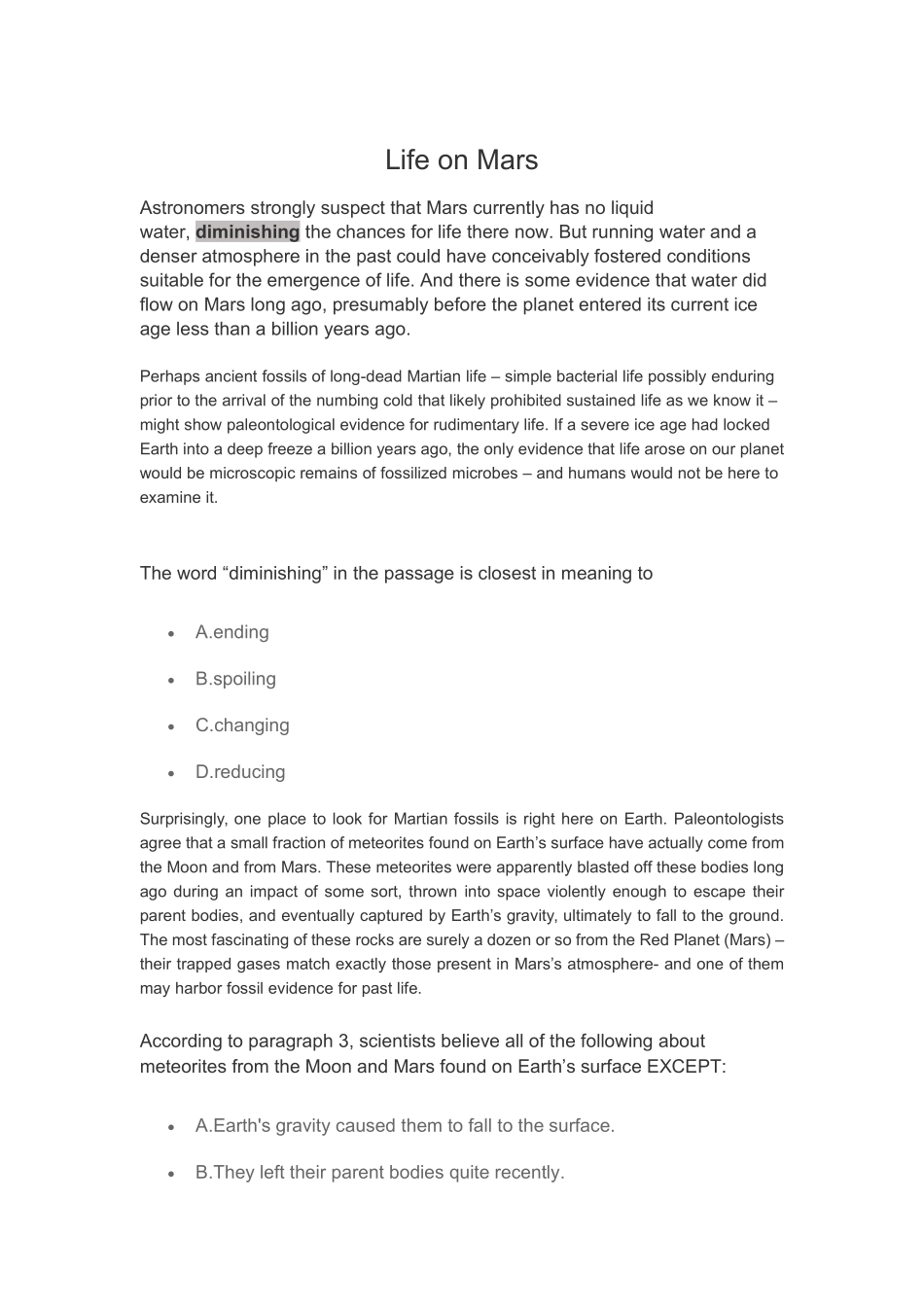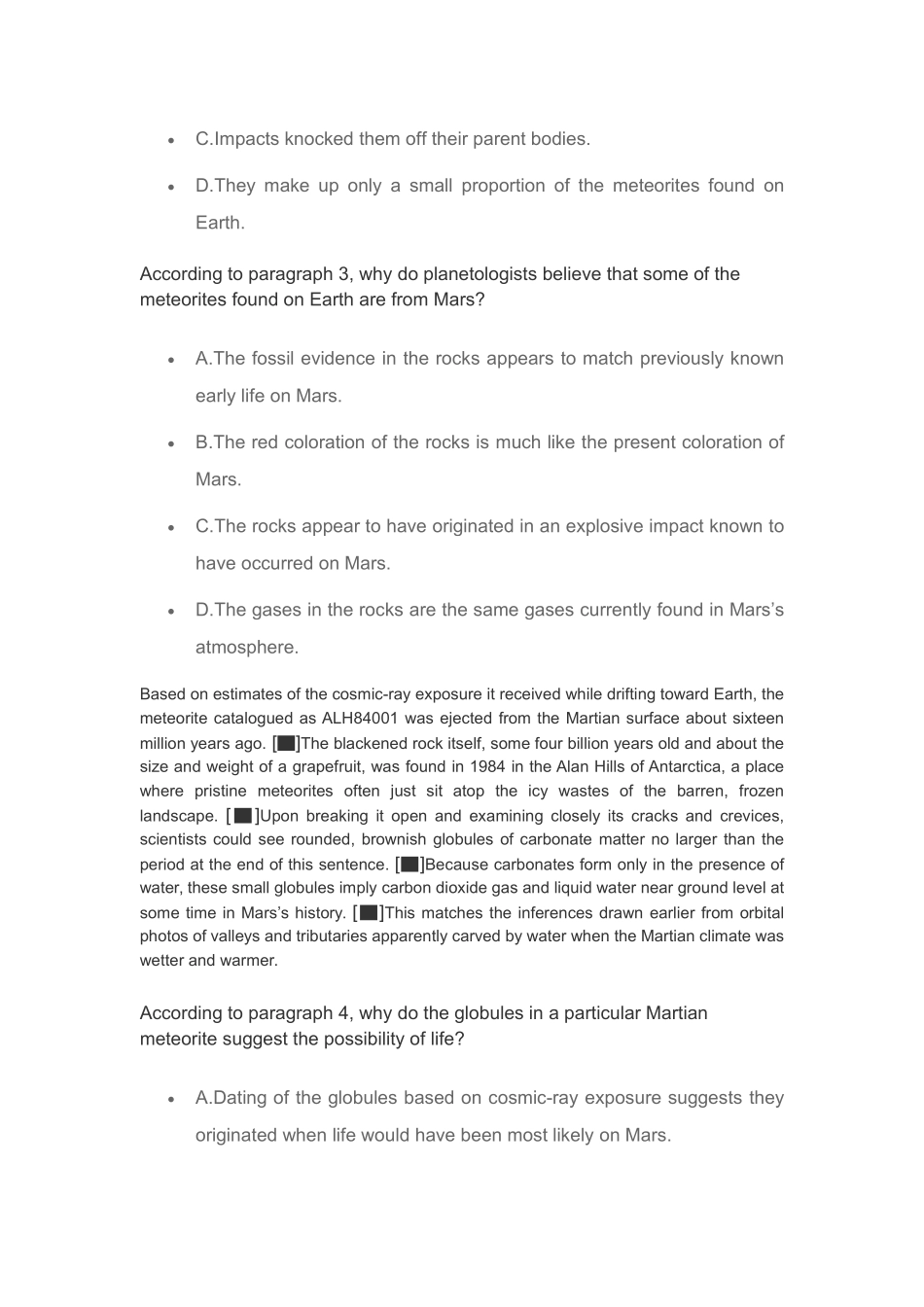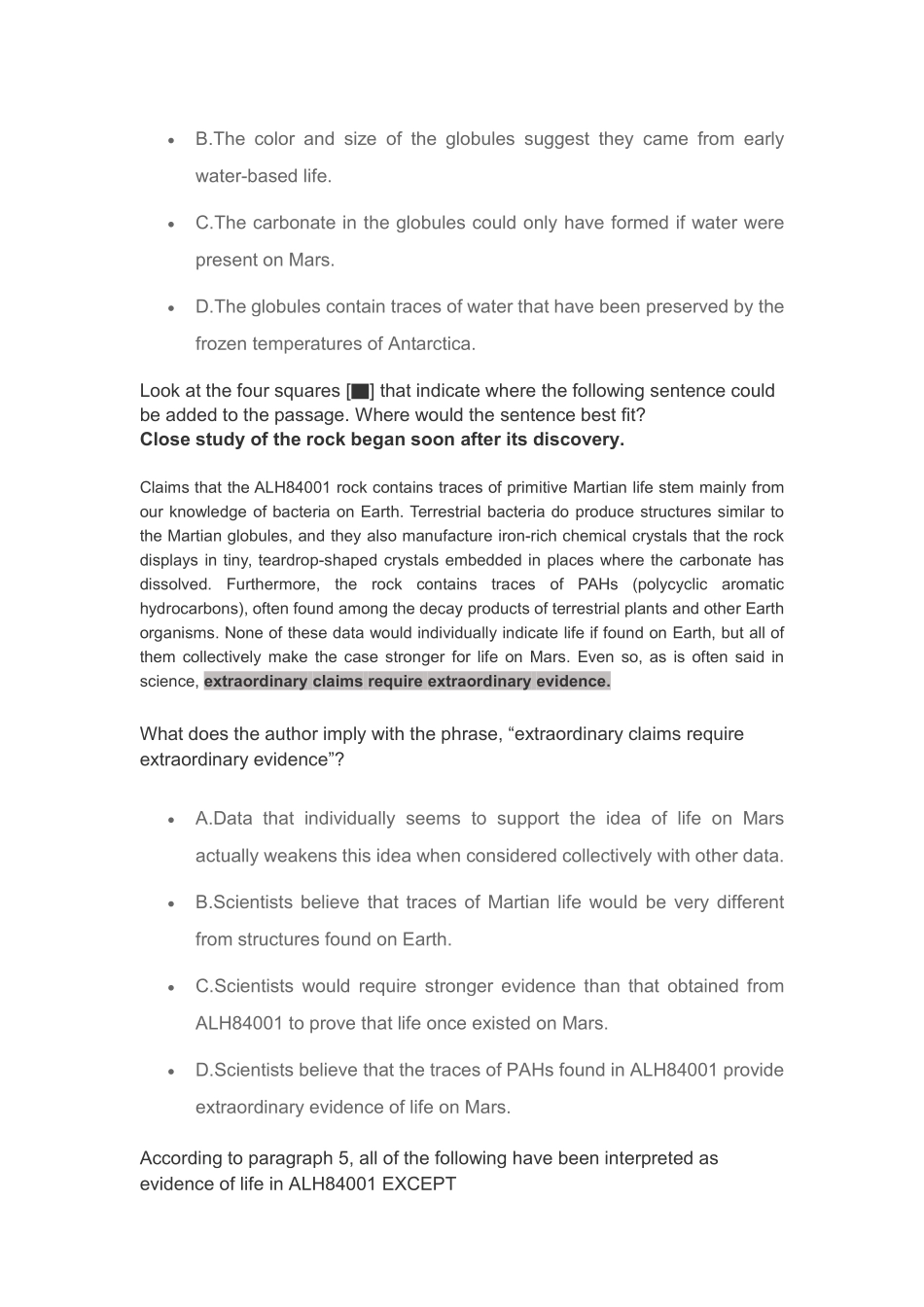Life on MarsAstronomers strongly suspect that Mars currently has no liquidwater, diminishing the chances for life there now. But running water and adenser atmosphere in the past could have conceivably fostered conditionssuitable for the emergence of life. And there is some evidence that water didflow on Mars long ago, presumably before the planet entered its current iceage less than a billion years ago.Perhaps ancient fossils of long-dead Martian life – simple bacterial life possibly enduringprior to the arrival of the numbing cold that likely prohibited sustained life as we know it –might show paleontological evidence for rudimentary life. If a severe ice age had lockedEarth into a deep freeze a billion years ago, the only evidence that life arose on our planetwould be microscopic remains of fossilized microbes – and humans would not be here toexamine it.The word “diminishing” in the passage is closest in meaning toA.endingB.spoilingC.changingD.reducingSurprisingly, one place to look for Martian fossils is right here on Earth. Paleontologistsagree that a small fraction of meteorites found on Earth’s surface have actually come fromthe Moon and from Mars. These meteorites were apparently blasted off these bodies longago during an impact of some sort, thrown into space violently enough to escape theirparent bodies, and eventually captured by Earth’s gravity, ultimately to fall to the ground.The most fascinating of these rocks are surely a dozen or so from the Red Planet (Mars) –their trapped gases match exactly those present in Mars’s atmosphere- and one of themmay harbor fossil evidence for past life.According to paragraph 3, scientists believe all of the following aboutmeteorites from the Moon and Mars found on Earth’s surface EXCEPT:A.Earth's gravity caused them to fall to the surface.B.They left their parent bodies quite recently.C.Impacts knocked them off their parent bodies.D.They make up only a small proportion of the meteorites found onEarth.According to paragraph 3, why do planetologists believe that some of themeteorites found on Earth are from Mars?A.The fossil evidence in the rocks appears to match previously knownearly life on Mars.B.The red coloration of the rocks is much like the present coloration ofMars.C.The rocks appear to have originated in an explosive impact known tohave occurred on Mars.D.The gases in the rocks are the same gases currently found in Mars’satmosphere.Based on estimates of the cosmic-ray exposure it received while drifting toward Earth, themeteorite catalogued as ALH84001 was ejected from the Martian surface about sixteenmillion years ago. [▇]The blackened rock itself, some four billion years old and about thesize and weight of a grapefruit, was found in 1984 in the Alan Hills of Antarctica, a placewhere pristine meteorites often just sit atop the icy wastes of the barren,...


